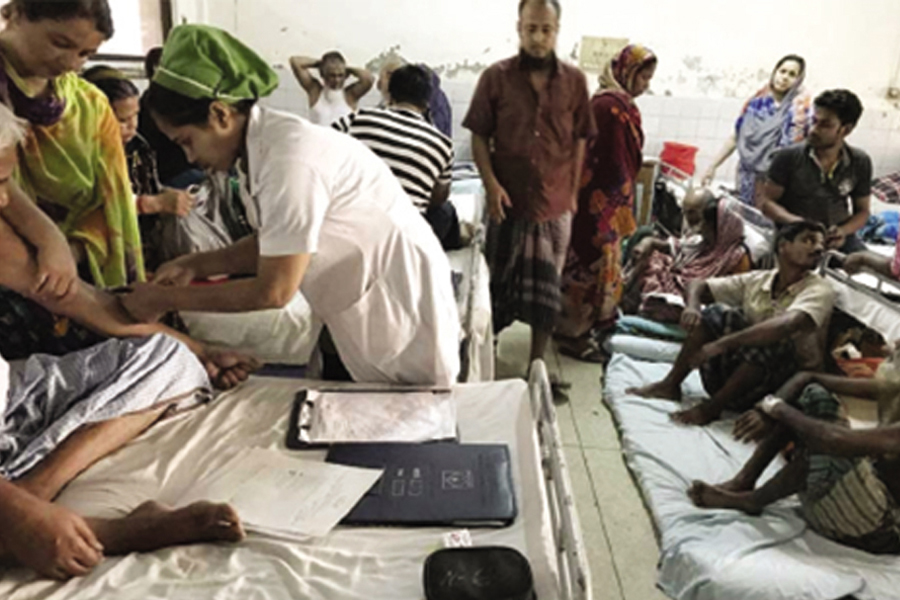
Published :
Updated :

It will be hard to find a single patient who, while receiving medical treatment at public health facilities in Bangladesh, did not experience neglect, non-cooperation or some other forms of unexpected behaviour from doctors, other healthcare providers or employees. What patients face at public hospitals sometimes go far beyond these. We sometimes come across media reports of physical assaults of patients or their attendants by hospital employees or guards. Bribing hospital employees for emergency care, admission and medical examinations has become so common that most people take it as the norm.
The public healthcare system in Bangladesh is considered a cornerstone of equitable health access for several reasons, chief among them being the low affordability of the majority of the people to buy medical services from private health facilities. But the public healthcare system is grappling with multifaceted challenges, beginning from infrastructural inadequacies to systemic corruption, that compromise patient care. A survey by the Transparency International Bangladesh several years ago revealed that over 40 per cent of service seekers fell victim to irregularities and corruption at public hospitals. It seems that the patients, who are compelled to depend on public hospitals for health services, have no dignity and no right to proper medical services and fair treatment. As media reports suggest, the suffering of patients who require admission begins as soon as they reach public hospital gates where guards lurk to divert them to private clinics mushrooming nearby. The guards, who usually come from Ansar-VDP and are on government payroll, act as commission agents of the clinics.
Medical negligence and maltreatment sometimes lead to deaths of patients. Incidentally, the cases of patients' deaths due to medical negligence have been more frequent than before in the country at both public and private health facilities. Though well-off patients who die at expensive private hospitals sometimes make headlines, poor patients who die or suffer for negligence at public hospitals often go unnoticed.
Several factors are responsible for the perennial medical negligence in Bangladesh with the major ones being infrastructural inadequacies, huge burden of patients on healthcare providers, the lack of accountability, widespread corruption like other public service sectors and the lack of awareness about the responsibilities of the healthcare professionals and the rights of the patients. Public health facilities here are inundated with patients, overwhelming their capacity. Major public hospitals in Dhaka and other cities witness thousands of patients daily, many of whom are forced to wait in long queues for hours - sometimes even for days - for basic medical services. Patients are often treated on the floor or in hospital corridors due to a lack of adequate number of beds. This overwhelming demand strains the already limited resources, leading to compromised patient care and increased risk of medical errors.
Public hospitals enjoy a sort of immunity which allows their staff to be less caring. Drives conducted by regulators at private clinics to examine if they comply with laws and properly serve patients are common, but such drives at public hospitals are seldom seen.
The negligence and maltreatment of patients in public health facilities is a pressing issue that undermines the nation's commitment to equitable healthcare. The country needs to enhance infrastructure, confront corruption, foster a culture of accountability and create awareness about the responsibilities of healthcare professionals vis-à-vis the rights of patients for restoring trust in its public healthcare system and ensuring the dignity and well-being of all patients.
rahmansrdk@gmail.com


 For all latest news, follow The Financial Express Google News channel.
For all latest news, follow The Financial Express Google News channel.